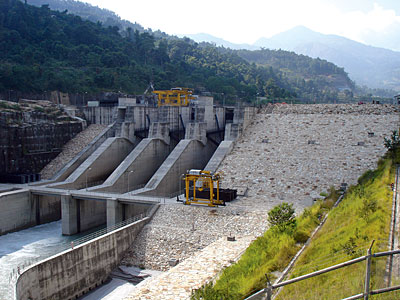 BADRI PAUDYAL |
Two weeks ago, the landlocked country of Mongolia put out five pages of advertorial in The Economist, which confidently describes itself as the magazine no self-respecting global investor is seen without.
It was all about the country's 'new beginning'. According to the advertorial, Mongolia sits atop rich mineral deposits, has now signed international conventions against corruption, fixed its legal and tax environment to attract 'big investors' such as mining giant Rio Tinto, expects to take advantage of the globalised world markets that surround it, and that, for "a small country", it expects to "set a great example....as a competent player on the world stage."
The ad's language was confident, backed up by market-friendly quotes and upward-sloping data, and designed to make people with money around the world pause and consider Ulan Bator as an investment destination.
Last week, Colombia published a similar pitch, inviting global investors to come and invest in hydrocarbons. "Start the decade with the best investment opportunities", screamed the ad, alongside which was a schedule of a road show going places such as New York, London and Shanghai.
Two other emerging economies, Georgia and Estonia, regularly reach out through advertorials touting their low tax rates, educated and skilled workforce, reform-conscious bureaucrats, improved rankings on global business tables, and market-friendly governments. And in Dhaka last week, I was pleasantly surprised by the growing confidence surrounding Bangladesh's ambition to expand its trade volume to become a middle-income country - a label it wants as a birthday present for its Golden Anniversary in 2021.
In the first decade of this century, these countries and others have realised that they might have their share of God-given wealth, but in the absence of a system to convert that wealth into capital, there is not much they can do to improve the lot of their citizens. One can't fill a hungry stomach with unprocessed natural resources or with promises of a yet-to-be-fulfilled potential.
To move ahead, these countries have come to accept the benefits of making it easier for foreigners to earn an attractive return when they invest money, time, technology, know-how, contacts and sales and marketing skills. Such skills help transform the fixed wealth into moving capital, which can then be used to provide water, sanitation, jobs, education and health care to millions of citizens. Absent such investors, development and growth slow down considerably. All this is basic stuff.
Yet this basic stuff continues to elude the central committee members of a certain political party, which reportedly ordered its foot-soldiers to issue a letter to GMR ITD Consortium, an Indian company, to stop work on the 300MW Upper Karnali Hydropower Project.
It would have been one thing if the company had been in Nepal illegally. It is not. It would have been worth a debate if the party itself had produced a sensible alternative as to how to develop the Karnali Project. It has not done that either.
All it has done is threaten investors who are already here. In doing so, it has set itself up as The Decider of Nepal's future, discouraged future investors from coming to Nepal, and sent a message to Nepalis that it intends to keep them in darkness for a long time. Civil society pundits may have polite phrases to describe this sort of behaviour. But to those who value democracy (with a small d) and a rule-of-law driven free society, only one word explains all this: Gangsterism.
"Come invest in Nepal, and see how your investments get thrown up in the swirl of internal political quarrels" is not the message we should be giving to the world when we are all desperately trying to create a better Nepal.



